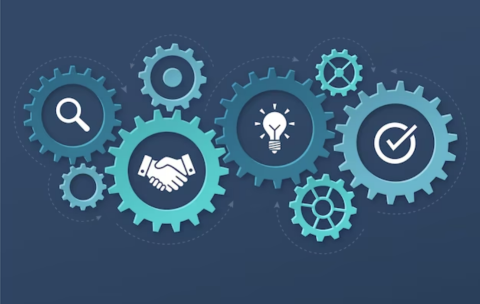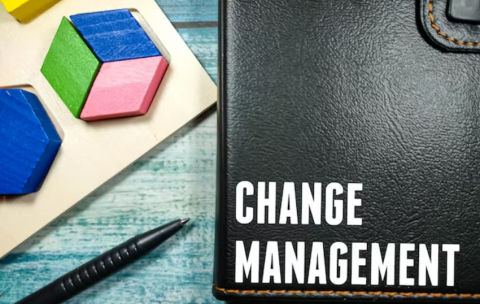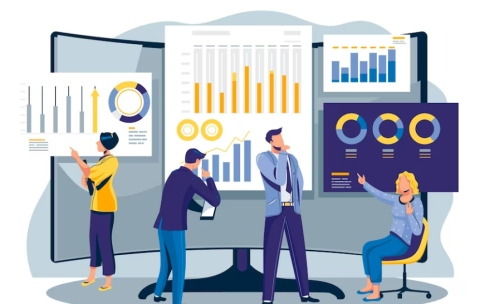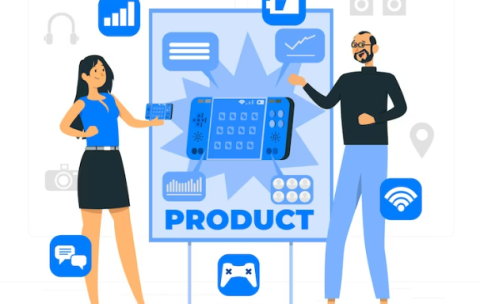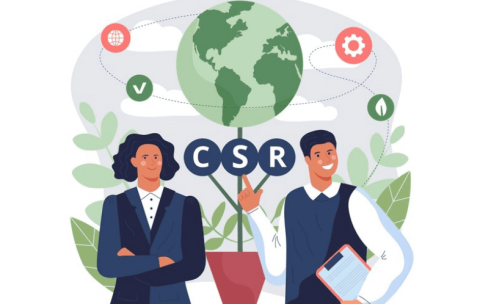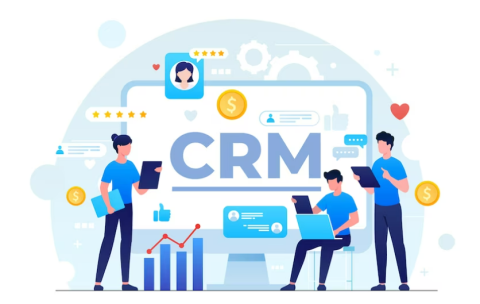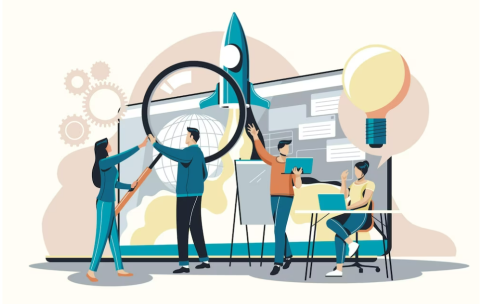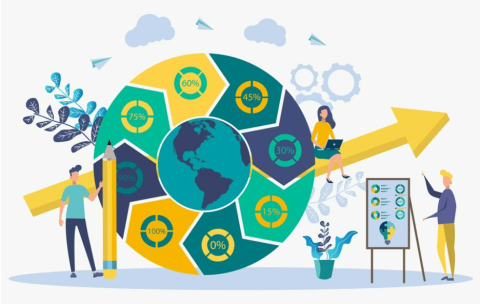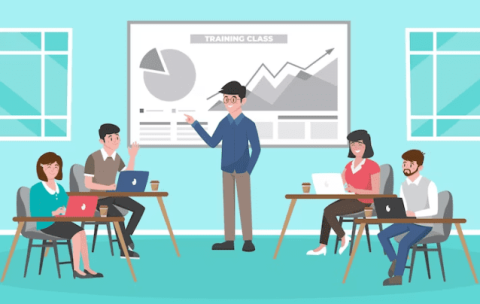Most popular
Introduction to Operations Management
8 Lessons
16 hours
Beginner
What you'll learn
Define and explain the key concepts and terminologies related to Operations Management.
Identify the role and significance of Operations Management within different types of organizations.
Analyze various operations strategies and their impact on business performance.
Evaluate the importance of process design, capacity planning, and quality management.
Apply quantitative techniques and tools to solve operational problems.
Understand the role of technology and innovation in modern Operations Management.
Discuss sustainability and ethical considerations in operations.
Change Management
20 hours
Beginner
What you'll learn
Week 1-2: Introduction to Change Management
Fundamentals of change management
Understanding why change happens and how it impacts organizations
The role of a change manager
Week 3-4: Theories and Models of Change
Overview of key change management theories (e.g., Lewin’s Change Model, Kotter’s 8-Step Change Model)
Analyzing different change management models and their applications
Week 5-6: Planning for Change
Developing effective change management strategies
Stakeholder analysis and engagement in change processes
Communication strategies for change
Week 7-8: Implementing Change
Execution of change initiatives
Overcoming challenges and obstacles in change implementation
Monitoring and controlling change processes
Week 9-10: Dealing with Resistance to Change
Understanding the root causes of resistance
Strategies for managing and mitigating resistance
Importance of empathy and communication in overcoming resistance
Week 11-12: Change and Organizational Culture
Impact of organizational culture on change
Aligning change initiatives with organizational values and culture
Cultural change and transformation
Week 13-14: Leading Change
Leadership styles and their impact on change management
Building and leading effective change teams
Personal and professional skills for change leaders
Week 15: Course Review and Final Assessment
Course Materials and Assessment:
Study Materials: Detailed notes, case studies, video lectures, and recommended readings.
Quizzes/Case Studies: Regular quizzes and case studies to reinforce concepts and apply learning.
MCQs: Multiple choice questions focusing on key topics for theoretical understanding.
Simulations: Interactive simulations for experiencing real-life change management scenarios.
Final Project: Developing a comprehensive change management plan for a real or hypothetical organization.
Foundations of Marketing
16.5 hours
All Levels
What you'll learn
Understand Marketing Fundamentals: Define marketing and understand its role in the business landscape.
Marketing Mix Mastery: Gain knowledge of the 4 Ps (Product, Price, Place, Promotion) and how to balance them in a marketing plan.
Market Segmentation and Targeting: Learn how to segment the market and target the right audience effectively.
Consumer Behavior Analysis: Understand consumer needs and how they influence marketing strategies.
Brand Positioning: Develop the skill to create and maintain a brand position in the market.
Marketing Research: Introduction to the basics of conducting market research to inform marketing decisions.
Digital Marketing Overview: Get acquainted with digital marketing channels and their role in contemporary marketing strategies.
Marketing Planning and Strategy: Learn how to develop a coherent marketing plan aligned with business objectives.
Measuring Marketing Effectiveness: Understand the key performance indicators (KPIs) for measuring the success of marketing activities.
Ethics in Marketing: Recognize the importance of ethical considerations in marketing practices.
Healthcare Management
20 hours
Beginner
What you'll learn
Week 1-2: Introduction to Healthcare Systems
Overview of healthcare systems globally
Structure and dynamics of the healthcare industry
Key stakeholders in healthcare and their roles
Week 3-4: Healthcare Policy and Regulation
Understanding healthcare policies and regulations
The impact of regulatory bodies on healthcare management
Policy challenges and opportunities in healthcare
Week 5-6: Quality and Performance Improvement in Healthcare
Principles of quality management in healthcare
Tools and strategies for performance improvement
Measuring and evaluating healthcare outcomes
Week 7-8: Financial Management in Healthcare
Basics of healthcare finance
Budgeting, financial planning, and cost control in healthcare
Reimbursement models and revenue cycle management
Week 9-10: Healthcare Leadership and Human Resource Management
Leadership styles and their impact on healthcare organizations
Human resource challenges in healthcare
Staff training, development, and retention strategies
Week 11-12: Healthcare Information Systems and Technology
Role of information systems in healthcare
Implementing and managing health information technology
Data privacy and security in healthcare
Week 13-14: Emerging Trends in Healthcare Management
Innovations in healthcare delivery and management
The impact of telemedicine and digital health
Future challenges and opportunities in healthcare
Week 15: Course Review and Final Assessment
Course Materials and Assessment:
Study Materials: Comprehensive lecture notes, case studies, video tutorials, and essential readings.
Quizzes/Case Studies: Regular quizzes and case studies to apply healthcare management concepts.
MCQs: Multiple choice questions to test understanding of healthcare management principles.
Simulations: Interactive simulations for practical experience in healthcare management scenarios.
Final Project: Developing a healthcare management plan or conducting a case study analysis on a healthcare organization.
Sustainable Supply Chain Practices
2 hours
All Levels
What you'll learn
Understand the concept and importance of sustainable supply chain management.
Explore key principles and practices of sustainable sourcing and procurement.
Identify strategies for reducing environmental impact and promoting eco-friendly practices in the supply chain.
Learn about social responsibility and ethical considerations in supply chain decision-making.
Understand the role of circular economy principles in sustainable supply chain practices.
Explore the benefits of collaboration and transparency in building a sustainable supply chain.
Analyze case studies showcasing successful implementation of sustainable supply chain practices.
Learn about measuring and reporting sustainability performance in the supply chain.
Explore innovation and technology applications for enhancing sustainability in the supply chain.
Develop a basic framework for integrating sustainability into supply chain operations.
Strategic Management
20 hours
Beginner
What you'll learn
Week 1-2: Introduction to Strategic Management
Understanding the fundamentals of strategic management
The role of strategic management in business
Overview of the strategic management process
Week 3-4: External Environment Analysis
Analyzing industry structure and competitive forces (Porter’s Five Forces)
Macro-environmental analysis (PESTEL framework)
Identifying opportunities and threats
Week 5-6: Internal Analysis and Resources
Assessing organizational resources and capabilities
The VRIO framework and value chain analysis
Identifying strengths and weaknesses
Week 7-8: Strategy Formulation
Vision, mission, and objectives setting
Business-level strategies and competitive positioning
Corporate-level strategies and growth approaches
Week 9-10: Strategy Implementation
Organizational design and strategic alignment
Change management in strategy implementation
Leadership and corporate culture in execution
Week 11-12: Strategic Control and Evaluation
Measuring and monitoring performance
Strategic information systems and feedback mechanisms
Balanced scorecard and other evaluation tools
Week 13-14: Contemporary Issues in Strategic Management
Digital transformation and strategic management
Sustainability and corporate social responsibility in strategy
Globalization and managing strategy in international contexts
Week 15: Course Review and Final Assessment
Course Materials and Assessment:
Study Materials: Comprehensive notes, case studies, video lectures, and readings.
Quiz/Case Study: Weekly quizzes and case studies for practical understanding.
MCQs: Multiple choice questions to test theoretical knowledge.
Simulations: Business simulations for real-world strategic decision-making experience.
Final Project: Analysis and development of a strategic plan for a real or hypothetical company.
Product Management
20 hours
Beginner
What you'll learn
Week 1-2: Introduction to Product Management
Understanding the role of a product manager
Overview of the product management process
Key concepts in product strategy and vision
Week 3-4: Market Research and Customer Insights
Techniques for Conducting Market Research
Identifying customer needs and market gaps
Using customer insights to inform product decisions
Week 5-6: Product Development Process
Stages of product development
Agile and lean methodologies in product development
Cross-functional collaboration and product team dynamics
Week 7-8: Product Positioning and Branding
Developing a product positioning strategy
Branding and identity for products
Competitive analysis and differentiation
Week 9-10: Go-to-Market Strategies and Launch Planning
Planning and executing product launches
Marketing and sales alignment
Pricing strategies and distribution channels
Week 11-12: User Experience and Design Thinking
Principles of user experience (UX) design
Incorporating design thinking in product development
Prototyping and user testing
Week 13-14: Product Analytics and Performance Measurement
Metrics and KPIs for product management
Analyzing product performance data
Iteration and continuous improvement strategies
Week 15: Course Review and Final Assessment
Course Materials and Assessment:
Study Materials: Comprehensive lecture notes, case studies, video tutorials, and essential readings.
Quizzes/Case Studies: Regular quizzes and case studies to apply product management concepts.
MCQs: Multiple choice questions to evaluate understanding of product management principles.
Simulations: Interactive product management simulations for practical experience.
Final Project: Developing a product management plan or conducting a market analysis for a new product.
E-commerce and Digital MarketingE-commerce and Digital Marketing
20 hours
Beginner
What you'll learn
Week 1-2: Introduction to E-commerce
Overview of e-commerce and its impact on business
Different e-commerce business models
Understanding the e-commerce ecosystem
Week 3-4: Digital Consumer Behavior
Analyzing online consumer behavior and trends
Customer journey mapping in the digital space
Building customer personas for online marketing
Week 5-6: Website Design and User Experience
Principles of effective website design
Enhancing user experience (UX) for e-commerce
Tools and platforms for website creation and management
Week 7-8: Search Engine Optimization (SEO) and Search Engine Marketing (SEM)
Fundamentals of SEO and SEM
Strategies for improving online visibility
Tools and techniques for SEO and SEM
Week 9-10: Social Media Marketing
Leveraging social media platforms for marketing
Creating engaging content and campaigns
Measuring social media marketing effectiveness
Week 11-12: Email Marketing and Online Advertising
Best practices in email marketing
Types and strategies of online advertising
Analyzing and optimizing email and advertising campaigns
Week 13-14: E-commerce Operations and Management
Managing e-commerce operations
Payment gateways and transaction security
Legal and ethical issues in e-commerce
Week 15: Course Review and Final Assessment
Course Materials and Assessment:
Study Materials: Comprehensive lecture notes, in-depth case studies, video tutorials, and essential readings.
Quizzes/Case Studies: Regular quizzes and case studies for practical application of e-commerce and digital marketing concepts.
MCQs: Multiple choice questions to assess theoretical understanding and practical knowledge.
Simulations: Interactive e-commerce and digital marketing simulations for experiential learning.
Final Project: Developing a comprehensive e-commerce business plan or a digital marketing strategy for a real or hypothetical product/service.
Overview of Cybersecurity
16.5 hours
All Levels
What you'll learn
Define Cybersecurity: Understand the concept, scope, and importance of cybersecurity in the digital age.
Recognize Cyber Threats: Identify various types of cyber threats and their potential impact on businesses and individuals.
Implement Protective Measures: Learn the fundamental protective measures to safeguard information systems.
Understand Compliance: Gain insight into the regulatory landscape and compliance requirements related to cybersecurity.
Respond to Incidents: Outline the basic steps for incident response and management.
Establish Security Policies: Understand the role of organizational policies in maintaining cybersecurity.
Appreciate Ethical Hacking: Introduce the concept of ethical hacking and its relevance in cybersecurity defense strategies.
Promote Cyber Hygiene: Learn best practices for personal and organizational cyber hygiene.
Explore Cybersecurity Technologies: Get acquainted with the latest technologies and tools used in cybersecurity.
Foster a Security Mindset: Develop a mindset oriented towards proactive security and continuous vigilance.
Prev
Next
Trending
Introduction to Innovation Management
17 hours
All Levels
What you'll learn
Understanding Innovation
The Innovation Management Process
Role of Leadership in Innovation
Innovative Thinking and Creativity
Technology and Innovation
Open Innovation and Collaboration
Managing Risks in Innovation
Business Model Innovation
Innovation Metrics and Evaluation
Cultural Aspects of Innovation
Market Research
20 hours
Beginner
What you'll learn
Week 1-2: Introduction to Market Research
Understanding the role and importance of market research in business decision-making
Different types of market research (qualitative and quantitative)
Overview of the market research process
Week 3-4: Research Design and Methodologies
Developing research objectives and hypotheses
Designing effective research studies
Qualitative research methods: Focus groups, interviews, ethnography
Week 5-6: Quantitative Research Methods
Survey design and implementation
Sampling methods and techniques
Introduction to quantitative data analysis
Week 7-8: Data Collection Techniques
Primary vs. secondary data collection
Online and offline data collection methods
Ethical considerations in data collection
Week 9-10: Data Analysis and Interpretation
Introduction to statistical analysis for market research
Analyzing and interpreting research data
Using software tools for data analysis
Week 11-12: Reporting and Presenting Research Findings
Creating effective research reports
Visualization of data and findings
Presenting research insights to stakeholders
Week 13-14: Advanced Topics in Market Research
Digital market research tools and techniques
Global market research challenges and strategies
Emerging trends in market research (e.g., AI, Big Data analytics)
Week 15: Course Review and Final Assessment
Course Materials and Assessment:
Study Materials: Comprehensive lecture notes, case studies, video lectures, and essential readings.
Quizzes/Case Studies: Weekly quizzes and practical case studies to apply market research concepts.
MCQs: Multiple choice questions to test theoretical knowledge and understanding.
Simulations: Market research simulations for practical experience in data collection and analysis.
Final Project: Conducting a full market research study, from design to presentation of findings.
Luxury Hospitality and Events Management
20 hours
Beginner
What you'll learn
Week 1-2: Foundations of Luxury Hospitality
Understanding luxury in the hospitality industry
Characteristics of Luxury Hospitality Services
The evolution and trends in luxury hospitality
Week 3-4: Customer Relationship Management in Luxury Hospitality
Building strong customer relationships in luxury settings
Personalization and customization in service delivery
Managing high-end clientele and VIP services
Week 5-6: Operations Management in Luxury Hotels and Resorts
Operational aspects of luxury hotels and resorts
Quality control and maintaining service excellence
Managing luxury accommodations and facilities
Week 7-8: Luxury Events Planning and Execution
Fundamentals of Luxury Event Management
Designing and executing high-profile events
Vendor and venue management for luxury events
Week 9-10: Marketing and Branding in Luxury Hospitality and Events
Marketing strategies for luxury hospitality brands
Brand management and positioning in the luxury market
Digital marketing and social media in luxury hospitality
Week 11-12: Financial Management in Luxury Hospitality
Financial planning and budgeting for luxury hotels and events
Revenue management and pricing strategies
Cost control without compromising luxury standards
Week 13-14: Sustainability and Ethics in Luxury Hospitality and Events
Incorporating sustainable practices in luxury hospitality
Ethical considerations and corporate social responsibility
Balancing luxury and sustainability
Week 15: Course Review and Final Assessment
Course Materials and Assessment:
Study Materials: Comprehensive lecture notes, case studies, video tutorials, and essential readings.
Quizzes/Case Studies: Regular quizzes and case studies for practical application of luxury hospitality and event management concepts.
MCQs: Multiple choice questions to test understanding of the luxury hospitality and event industry.
Simulations: Interactive simulations for experiential learning in luxury hospitality and event scenarios.
Final Project: Developing a comprehensive plan for a luxury hospitality venture or a high-end event.
The Evolution of Corporate Social Responsibility (CSR)
2 hours
All Levels
What you'll learn
Understand the concept and definition of Corporate Social Responsibility (CSR).
Trace the historical evolution of CSR from its origins to the present day.
Recognize the key drivers that have shaped the development of CSR.
Explore the impact of CSR on business sustainability and reputation.
Identify the role of stakeholders in influencing CSR initiatives.
Analyze real-world case studies illustrating successful CSR practices.
Discuss the challenges and criticisms faced by companies in implementing CSR.
Examine the relationship between CSR and ethical business practices.
Assess the global trends and standards in corporate social responsibility.
Develop a basic framework for implementing CSR in a business context.
Introduction to Operations Management
8 Lessons
16 hours
Beginner
What you'll learn
Define and explain the key concepts and terminologies related to Operations Management.
Identify the role and significance of Operations Management within different types of organizations.
Analyze various operations strategies and their impact on business performance.
Evaluate the importance of process design, capacity planning, and quality management.
Apply quantitative techniques and tools to solve operational problems.
Understand the role of technology and innovation in modern Operations Management.
Discuss sustainability and ethical considerations in operations.
Change Management
20 hours
Beginner
What you'll learn
Week 1-2: Introduction to Change Management
Fundamentals of change management
Understanding why change happens and how it impacts organizations
The role of a change manager
Week 3-4: Theories and Models of Change
Overview of key change management theories (e.g., Lewin’s Change Model, Kotter’s 8-Step Change Model)
Analyzing different change management models and their applications
Week 5-6: Planning for Change
Developing effective change management strategies
Stakeholder analysis and engagement in change processes
Communication strategies for change
Week 7-8: Implementing Change
Execution of change initiatives
Overcoming challenges and obstacles in change implementation
Monitoring and controlling change processes
Week 9-10: Dealing with Resistance to Change
Understanding the root causes of resistance
Strategies for managing and mitigating resistance
Importance of empathy and communication in overcoming resistance
Week 11-12: Change and Organizational Culture
Impact of organizational culture on change
Aligning change initiatives with organizational values and culture
Cultural change and transformation
Week 13-14: Leading Change
Leadership styles and their impact on change management
Building and leading effective change teams
Personal and professional skills for change leaders
Week 15: Course Review and Final Assessment
Course Materials and Assessment:
Study Materials: Detailed notes, case studies, video lectures, and recommended readings.
Quizzes/Case Studies: Regular quizzes and case studies to reinforce concepts and apply learning.
MCQs: Multiple choice questions focusing on key topics for theoretical understanding.
Simulations: Interactive simulations for experiencing real-life change management scenarios.
Final Project: Developing a comprehensive change management plan for a real or hypothetical organization.
Renewable Energy Technologies
16.5 hours
All Levels
What you'll learn
Understanding Renewable Energy: Grasp basic concepts and the importance of renewable energy.
Types of Renewable Energy: Explore different types, such as solar, wind, hydro, and biomass.
Technology Behind Renewable Energy: Understand the technological principles of renewable energy systems.
Economic Aspects: Analyze the economic implications and business models related to renewable energy.
Environmental Impact: Learn about the environmental benefits and sustainability aspects.
Policy and Regulatory Frameworks: Study government policies and regulations impacting renewable energy.
Innovation in Renewable Technologies: Examine recent innovations and advancements in the field.
Challenges and Barriers: Understand the challenges in adopting renewable energy technologies.
Case Studies: Review real-world examples of successful renewable energy projects.
Future Trends: Discuss emerging trends and the future scope in renewable energy.
Customer Relationship Management
20 hours
Beginner
What you'll learn
Week 1-2: Introduction to Customer Relationship Management
Fundamentals of CRM
The role of CRM in business strategy
Evolution of CRM practices
Week 3-4: Understanding Customer Behavior
Analyzing customer needs and preferences
Customer segmentation and profiling
Customer journey mapping
Week 5-6: CRM Strategies and Practices
Developing effective CRM strategies
Best practices in customer acquisition, retention, and loyalty
Integrating CRM with marketing strategies
Week 7-8: CRM Tools and Technologies
Overview of CRM software and platforms
Implementing CRM systems in organizations
Leveraging technology for personalized customer experiences
Week 9-10: Data-Driven CRM
Collecting and managing customer data
Analyzing customer data for insights
Utilizing data analytics in CRM decision-making
Week 11-12: Customer Service and Support
Principles of effective customer service
Strategies for customer support and service excellence
Measuring and enhancing customer satisfaction
Week 13-14: Ethical and Legal Aspects of CRM
Ethical considerations in CRM
Privacy and legal issues related to customer data
Building trust and maintaining ethical customer relationships
Week 15: Course Review and Final Assessment
Course Materials and Assessment:
Study Materials: Detailed lecture notes, case studies, video lectures, and recommended readings.
Quizzes/Case Studies: Weekly quizzes and practical case studies for hands-on application of CRM concepts.
MCQs: Multiple choice questions to assess theoretical understanding and practical knowledge.
Simulations: CRM simulations for real-world experience in managing customer relationships.
Final Project: Developing a comprehensive CRM strategy for a real or hypothetical company.
Entrepreneurship
20 hours
Beginner
What you'll learn
Week 1-2: Introduction to Entrepreneurship
Understanding the entrepreneurial mindset and characteristics
Historical context and evolution of entrepreneurship
The role of entrepreneurship in the economy
Week 3-4: Idea Generation and Validation
Techniques for generating business ideas
Market research and feasibility analysis
Validating business ideas through customer feedback
Week 5-6: Business Model and Plan Development
Components of a business model
Writing a comprehensive business plan
Tools and frameworks for business model innovation (e.g., Business Model Canvas)
Week 7-8: Marketing and Sales Strategies for Startups
Developing marketing strategies for new ventures
Digital marketing and social media for startups
Sales tactics and customer acquisition
Week 9-10: Financial Planning and Management
Basics of financial planning for startups
Understanding and managing startup costs
Financial forecasting and budgeting
Week 11-12: Raising Capital and Funding Strategies
Overview of funding options for startups (VC, angel investment, crowdfunding)
Pitching to investors and negotiating terms
Bootstrapping and alternative funding methods
Week 13-14: Scaling and Growing the Business
Strategies for business growth and scaling
Managing operational challenges in growth
Innovation and continuous improvement in startups
Week 15: Course Review and Final Assessment
Course Materials and Assessment:
Study Materials: Comprehensive lecture notes, case studies, video tutorials, and essential readings.
Quizzes/Case Studies: Regular quizzes and case studies to apply entrepreneurial concepts.
MCQs: Multiple choice questions to test understanding of entrepreneurship principles.
Simulations: Interactive entrepreneurship simulations for practical experience.
Final Project: Developing a business plan for a startup idea or conducting a case study analysis on a successful entrepreneur.
Global Entrepreneurship Trends
1 Lesson
18.5 hours
Beginner
What you'll learn
Understand the dynamics of the global entrepreneurship landscape, including trends and challenges.
Explore the impact of emerging technologies on entrepreneurial ventures worldwide.
Analyze the influence of cross-cultural factors on entrepreneurial decision-making.
Assess global funding and investment trends shaping the entrepreneurial ecosystem.
Examine the role of government policies and regulations in shaping global entrepreneurship.
Develop skills for global networking and collaboration in the entrepreneurial context.
Explore trends in social entrepreneurship and its contribution to addressing global challenges.
Prev
Next
Featured Courses
The Evolution of Corporate Social Responsibility (CSR)
2 hours
All Levels
What you'll learn
Understand the concept and definition of Corporate Social Responsibility (CSR).
Trace the historical evolution of CSR from its origins to the present day.
Recognize the key drivers that have shaped the development of CSR.
Explore the impact of CSR on business sustainability and reputation.
Identify the role of stakeholders in influencing CSR initiatives.
Analyze real-world case studies illustrating successful CSR practices.
Discuss the challenges and criticisms faced by companies in implementing CSR.
Examine the relationship between CSR and ethical business practices.
Assess the global trends and standards in corporate social responsibility.
Develop a basic framework for implementing CSR in a business context.
Nonprofit Governance and Leadership
1 hour
All Levels
What you'll learn
Understand the unique characteristics and purpose of nonprofit organizations.
Explore the role and responsibilities of nonprofit boards in governance.
Identify key principles of effective nonprofit leadership.
Analyze the relationship between governance, leadership, and organizational success.
Learn about legal and ethical considerations in nonprofit governance.
Examine strategies for building and sustaining a strong board of directors.
Understand the importance of transparency and accountability in nonprofit operations.
Explore the challenges and opportunities in nonprofit leadership.
Analyze case studies showcasing successful nonprofit governance models.
Develop a basic understanding of nonprofit financial management.
Sustainable Business Models
2 hours
All Levels
What you'll learn
Understanding Sustainable Business Models:
Define sustainable business models and their importance in contemporary business.
Explore the triple bottom line approach (people, planet, profit) in sustainable business.
Key Principles of Sustainable Business:
Identify the key principles and characteristics of sustainable business models.
Understand the integration of social, environmental, and economic considerations.
Sustainable Innovation and Product Design:
Explore how sustainable business models drive innovation.
Understand sustainable product design and its impact on the market.
Circular Economy and Resource Efficiency:
Introduce the concept of a circular economy in sustainable business.
Discuss strategies for resource efficiency and waste reduction.
Ethical and Social Responsibility in Business:
Explore the ethical considerations and social responsibility in sustainable business practices.
Discuss the role of businesses in addressing social and environmental issues.
Case Studies of Successful Sustainable Business Models:
Analyze real-world case studies showcasing successful implementation of sustainable business models.
Extract lessons and insights from these cases.
Sustainable Supply Chain Integration:
Discuss how sustainable practices extend into the supply chain.
Understand the importance of sustainable sourcing and procurement.
Green Marketing and Consumer Behavior:
Explore green marketing strategies in sustainable business.
Understand how consumer behavior influences the success of sustainable products.
Measuring and Reporting Sustainability Performance:
Identify key metrics for measuring sustainability performance in business.
Discuss the importance of transparent reporting in sustainable business.
Developing a Sustainable Business Plan:
Learn how to develop a sustainable business plan.
Understand the elements and considerations for integrating sustainability into business strategy.
Sustainable Supply Chain Practices
2 hours
All Levels
What you'll learn
Understand the concept and importance of sustainable supply chain management.
Explore key principles and practices of sustainable sourcing and procurement.
Identify strategies for reducing environmental impact and promoting eco-friendly practices in the supply chain.
Learn about social responsibility and ethical considerations in supply chain decision-making.
Understand the role of circular economy principles in sustainable supply chain practices.
Explore the benefits of collaboration and transparency in building a sustainable supply chain.
Analyze case studies showcasing successful implementation of sustainable supply chain practices.
Learn about measuring and reporting sustainability performance in the supply chain.
Explore innovation and technology applications for enhancing sustainability in the supply chain.
Develop a basic framework for integrating sustainability into supply chain operations.
Global Market Entry Strategies
2 hours
Beginner
What you'll learn
Understanding Global Market Entry:
Define global market entry and its significance for businesses.
Explore the key factors influencing the decision to enter global markets.
Types of Market Entry Strategies:
Identify and analyze various market entry strategies.
Understand the differences between exporting, licensing, franchising, joint ventures, and wholly-owned subsidiaries.
Cultural and Regulatory Considerations:
Explore the cultural and regulatory factors impacting global market entry.
Understand how businesses adapt strategies to different cultural and legal environments.
Market Research and Analysis:
Discuss the importance of thorough market research and analysis in global market entry.
Identify key considerations for assessing the feasibility of entering specific markets.
Risk Management in Global Expansion:
Understand the risks associated with global market entry.
Explore strategies for mitigating risks and ensuring successful market penetration.
Case Studies of Successful Market Entries:
Analyze real-world case studies of successful global market entry strategies.
Extract lessons and insights from these cases.
Strategic Alliances and Partnerships:
Explore the role of strategic alliances and partnerships in global market entry.
Discuss collaborative approaches to entering new markets.
Adapting Marketing Strategies:
Discuss how businesses adapt marketing strategies for global market entry.
Explore localization and customization of marketing efforts.
Technology and Global Market Entry:
Understand how technology facilitates global market entry.
Explore the role of e-commerce and digital platforms in reaching international audiences.
Developing a Global Market Entry Plan:
Learn how to develop a comprehensive global market entry plan.
Understand the essential components and steps for successful international expansion.
Omnichannel Retailing Strategies
2 hours
All Levels
What you'll learn
Understand the concept of omnichannel retailing and its significance in the modern retail landscape.
Explore key omnichannel strategies, including seamless customer experience and integrated sales channels.
Identify the role of technology in enabling omnichannel retailing.
Learn about data-driven decision-making in omnichannel strategies.
Understand the challenges and opportunities associated with implementing omnichannel approaches.
Explore successful case studies of companies implementing effective omnichannel strategies.
Analyze the impact of omnichannel retailing on customer loyalty and brand reputation.
Learn about inventory management and fulfillment in the context of omnichannel operations.
Understand the role of social media and online platforms in omnichannel marketing.
Develop a basic framework for implementing omnichannel retailing in a business context.
Product Management
2 hours
All Levels
What you'll learn
Understand the fundamentals of Agile methodology and its application in product management.
Explore key Agile principles and how they differ from traditional project management.
Identify the roles and responsibilities within an Agile product management team.
Learn the agile product development lifecycle and iterative planning.
Familiarize yourself with popular Agile frameworks such as Scrum and Kanban.
Understand the importance of customer feedback and continuous improvement in Agile.
Explore effective communication and collaboration practices in Agile teams.
Learn how to create and manage a product backlog in an Agile environment.
Understand the concept of Minimum Viable Product (MVP) and its role in Agile product development.
Develop a basic understanding of metrics and key performance indicators (KPIs) in Agile product management.
Prev
Next
Popular Topics
Popular Instructors
All Lesson Plan Courses
Select Categories
Iks Menu
Cannot get WordPress menu (id = 2270)
Filter by
Instructor
Language
We found 59 courses available for you
What you'll learn
Understand the fundamentals of Agile methodology and its application in product management.
Explore key Agile principles and how they differ from traditional project management.
Identify the roles and responsibilities within an Agile product management team.
Learn the agile product development lifecycle and iterative planning.
Familiarize yourself with popular Agile frameworks such as Scrum and Kanban.
Understand the importance of customer feedback and continuous improvement in Agile.
Explore effective communication and collaboration practices in Agile teams.
Learn how to create and manage a product backlog in an Agile environment.
Understand the concept of Minimum Viable Product (MVP) and its role in Agile product development.
Develop a basic understanding of metrics and key performance indicators (KPIs) in Agile product management.


